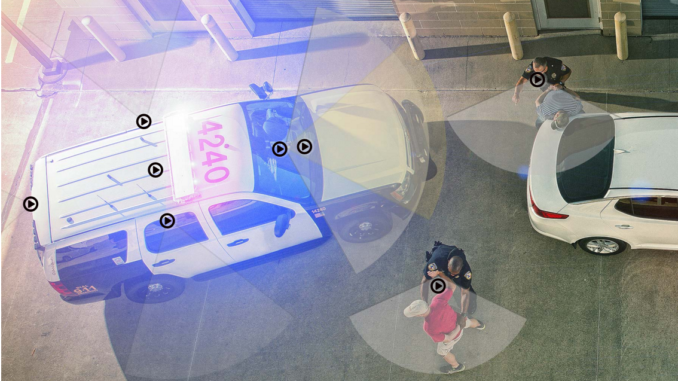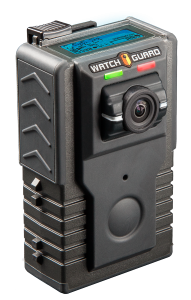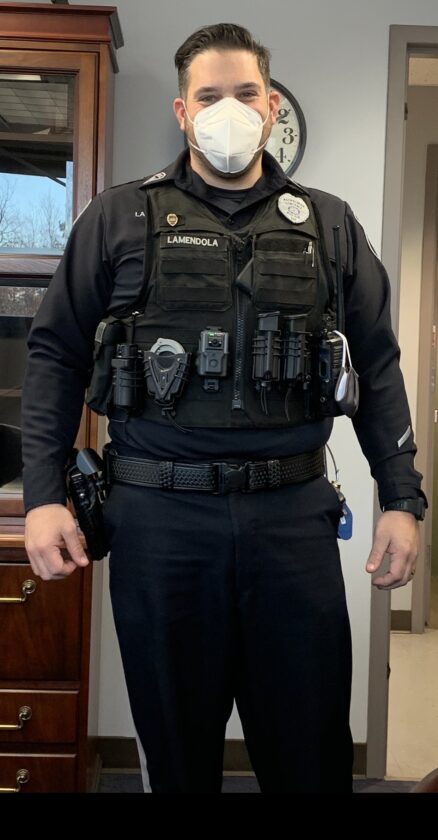
PASCACK VALLEY AREA, N.J.—Gov. Phil Murphy approved $58 million in funding for police body-worn cameras on Dec. 23, 2020, the money to help reimburse local police departments for camera purchases.

Murphy mandated the cameras effective Jan. 1, subject to state funding availability. The cameras and funding have wide support from police agencies and departments in New Jersey, which is one of six states nationwide to mandate police wear cameras.
Most departments already equip police vehicles with dash-mounted cameras. The body cameras will be worn on the front of the officers’ bodies, on their outermost garment.
The funding legislation eliminates a major obstacle to equipping officers with cameras, and prevents any future challenges to the law as an unfunded mandate.
All Pascack Valley police chiefs we interviewed in December spoke positively about body-worn cameras, citing their value to police officers, citizens, and leading to better policing in general, while increasing transparency and public accountability.
Most often, having a camera benefits the officers and helps build public trust in their local police, the chiefs said.
River Vale Police Chief Sean Scheidle said body-worn cameras “are good for everyone. They will document the factual details of what occurred without bias. When an officer acts properly it will be documented and when an officer acts improperly it will be documented.”
Scheidle said video footage can be used in a trial, for investigative purposes, for training, and in “a corrective action.”
In our survey, only one of eight Pascack Valley police departments—Montvale’s—had already purchased the cameras— Motorola WatchGuard Vistas—and was ready to implement their use as of Jan. 1.
“Once reimbursement funding becomes available, we will certainly pursue it,” Montvale Police Chief Joseph Sanfilippo told Pascack Press Jan. 4.
Sanfilippo announced the new program two months ago in our pages, noting officers will be wearing body cameras on all shifts, following guidance from the state attorney general and the Bergen County Prosecutor’s Office.

Sanfilippo told Pascack Press that the cameras will be deployed during criminal investigations, motor vehicle stops, witness interviews, searches, civil disorder, court security, use of force and constructive authority, transporting prisoners, making arrests, conducting protective searches for weapons, and calls for service.
He said video storage requirements depend on incident type, with most being 90 days. He said footage of such an offense as driving while intoxicated can be stored up to 10 years.
Murphy mandated body-camera use statewide in mid-November and said the body-worn cameras would help effect “transparency and accountability in policing” and called spending for them “a wise all-around investment in public safety and justice, when used properly.”
New Jersey joined a few other states in mandating body-worn cameras following a summer of protests for social justice after the highly publicized death in police custody of George Floyd, an unarmed Black man, in Minneapolis.
Floyd’s death, along with other recent minority deaths following police encounters, have led activists to call for a variety of police reforms nationwide.
In the Pascack Valley, peaceful protests for social justice, racial equality, and police accountability occurred in Hillsdale, Westwood, and Woodcliff Lake over the summer.
At least two towns, Park Ridge and Montvale, have recently initiated committees to promote local diversity and inclusion efforts.
